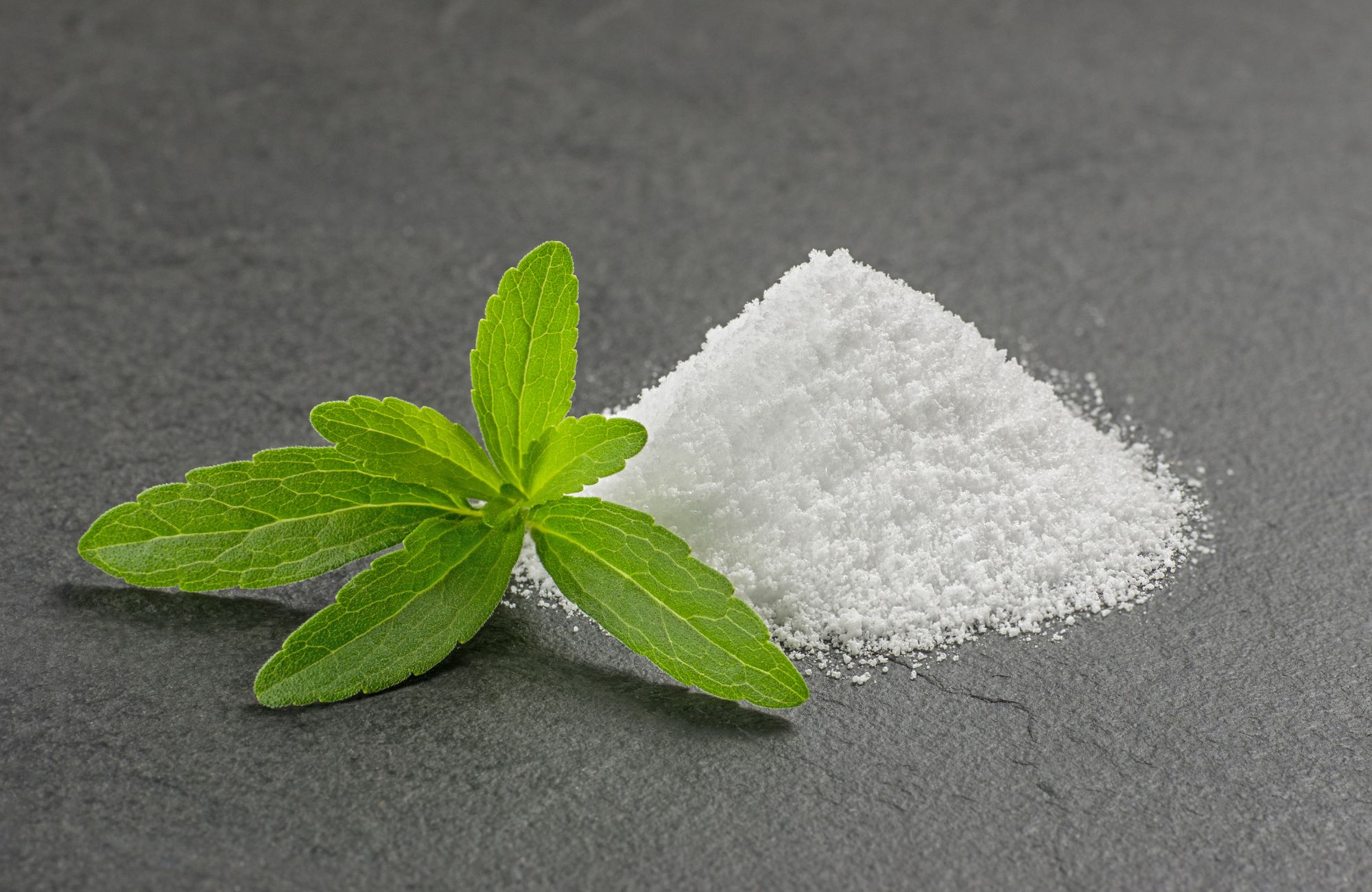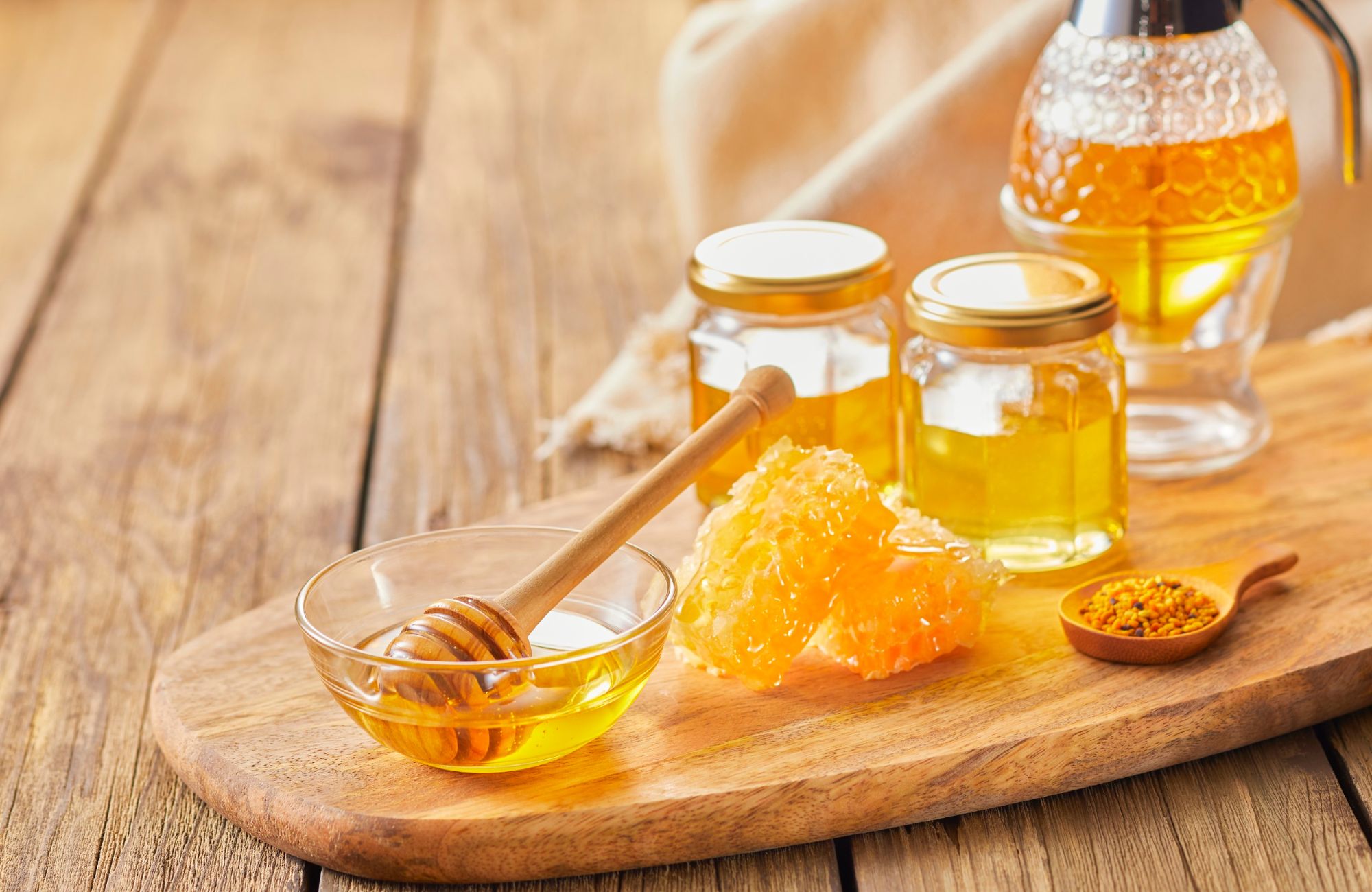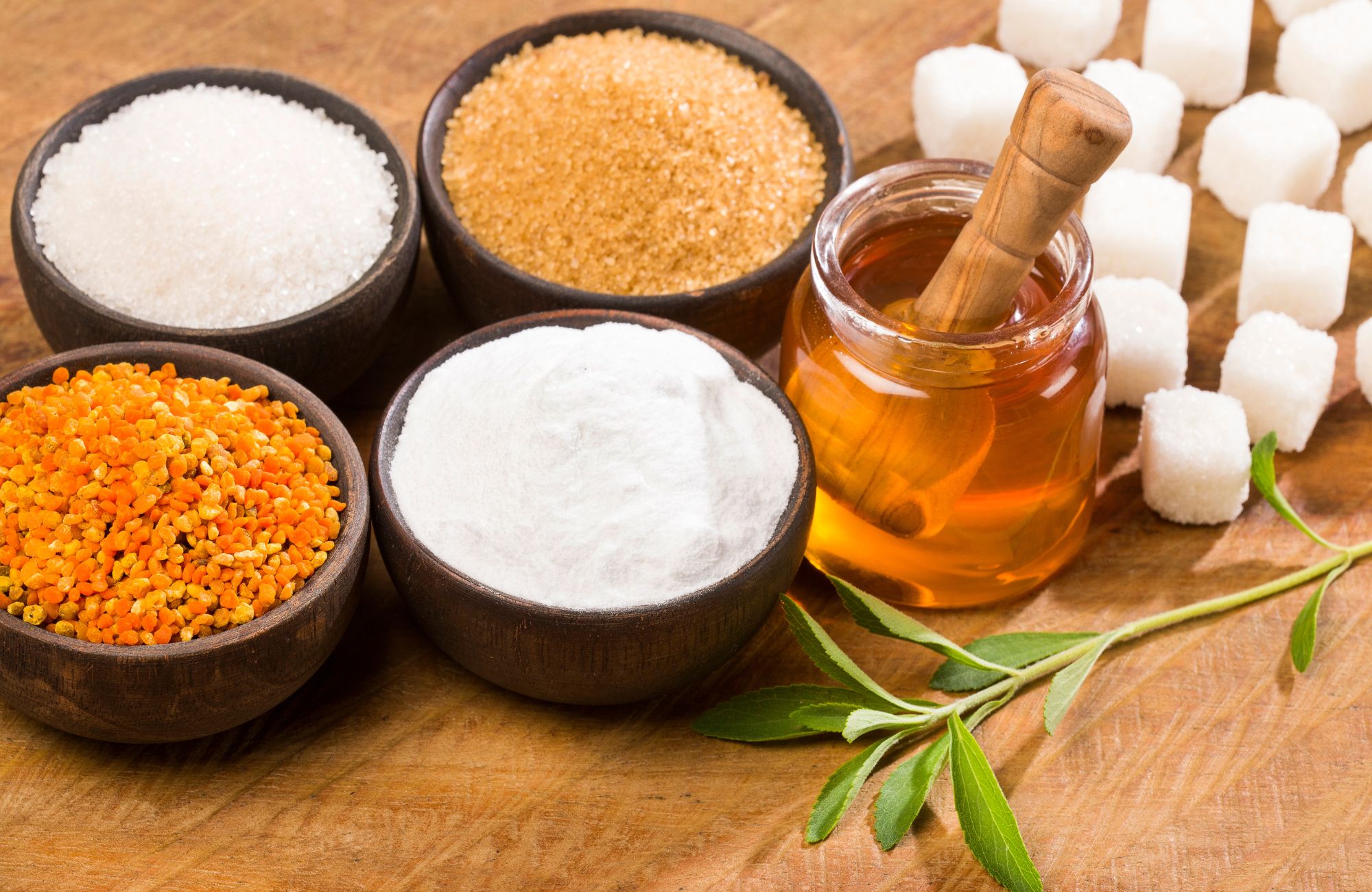
Ever stood in the grocery aisle, staring at those colorful sweetener packets and wondering if the green one, stevia, is really the healthier choice? While it’s often marketed as “natural,” confusion swirls around whether stevia is just another lab-made sugar substitute like aspartame or sucralose.
Here’s the truth. Stevia isn’t artificial. It’s extracted from the leaves of the Stevia rebaudiana plant, not synthesized in a lab. That makes it a natural sweetener, even if its processing raises some eyebrows. Unlike its blue, pink, and yellow counterparts, stevia starts in the ground, not in a beaker.
Introduction to Natural Sweeteners
Natural sweeteners are plant-based alternatives to sugar that offer sweetness without the extra calories. Popular options include stevia, monk fruit, and sugar alcohols like xylitol and sorbitol. These sweeteners are widely used in foods and drinks aimed at reducing sugar intake.
Monk fruit, long used in traditional Chinese medicine, is much sweeter than sugar and now found in many low-calorie products. Sugar alcohols, naturally found in fruits and vegetables, are common in sugar-free gum and candies. As more people seek healthier options, natural sweeteners continue to grow in popularity for their versatility and low-calorie benefits.
What Is Stevia? Understanding Its Natural Origins
Stevia has been used for centuries by indigenous peoples in Paraguay and Brazil, who called it “sweet leaf” or “honey leaf” and used it to sweeten teas and medicines. The plant, Stevia rebaudiana, is a small shrub related to sunflowers that thrives in semi-tropical climates and is now grown worldwide to meet demand for natural sweeteners.
What sets stevia apart from artificial sweeteners is its natural origin. Unlike aspartame or sucralose, which are lab-made, stevia’s sweetness comes from compounds found naturally in its leaves. These steviol glycosides are not only calorie-free but are also recognized for their safety and potential benefits for managing diabetes, obesity, and overall health.
The Science Behind Stevia’s Sweetness
Stevia has been used for centuries by indigenous communities in Paraguay and Brazil, who chewed the leaves or used them to sweeten teas and medicines. Known as “sweet leaf” or “honey leaf,” its use dates back over 1,500 years, long before modern sugar substitutes appeared.
Unlike artificial sweeteners made in labs, stevia comes straight from nature. The Stevia rebaudiana plant, a small shrub related to sunflowers, contains sweet compounds in its leaves. These natural extracts, called steviol glycosides, are not only safe but may also support health goals like managing diabetes and reducing calorie intake.
How Stevia Is Processed: From Plant to Sweetener
The journey from the stevia plant to the sweetener in your coffee involves several steps, but the process remains fundamentally extractive rather than synthetic:
- Cultivation: Stevia plants are grown in controlled environments to ensure optimal leaf production.
- Harvesting: Leaves are harvested when their steviol glycoside content reaches its peak.
- Drying: Freshly harvested leaves are dried to preserve their sweet compounds.
- Extraction: Dried leaves are steeped in hot water, similar to making tea.
- Filtration: The resulting liquid is filtered to remove plant material.
- Purification: The extract undergoes further purification to isolate the sweetest glycosides. Stevia extracts are stable at high temperatures, making them suitable for various culinary applications.
- Crystallization: The purified extract is dried into a powdered form.
This water-based extraction method is fundamentally different from the chemical synthesis used to create artificial sweeteners. While the commercial process does involve refinement and purification, these steps are designed to concentrate the naturally occurring compounds rather than create new molecules. If you’re curious about the process, learn more about what sugar is made from.
Regulatory Status and Safety Profile
In 2008, the Food and Drug Administration granted high-purity steviol glycosides “generally recognized as safe” status, but this applies only to extracts with at least 95 percent purity. Crude stevia extracts and whole leaves are not approved due to limited safety data, which can influence which stevia products are available on the market.
Other global agencies agree on its safety. The European Food Safety Authority approved steviol glycosides in 2010, and the Joint Expert Committee on Food Additives, which advises the World Health Organization, set an acceptable daily intake of four milligrams per kilogram of body weight, well above what most people consume. Decades of research support the safety of purified stevia, even for children and pregnant women
Stevia vs. Artificial Sweeteners: The Critical Differences
To fully understand why stevia isn’t an artificial sweetener, let’s compare it directly with common artificial alternatives:
| Sweetener | Origin | Sweetness vs. Sugar | Calories | Health Considerations |
|---|---|---|---|---|
| Stevia | Plant leaves | 200–400x sweeter | 0 | Natural, minimal concerns |
| Aspartame (Equal) | Laboratory-created | 200x sweeter | 4 cal/g | Phenylalanine warnings |
| Saccharin (Sweet’N Low) | Chemical synthesis | 200–700x sweeter | 0 | Historic bladder cancer concerns |
| Sucralose (Splenda) | Chlorinated sugar | 600x sweeter | 0 | Limited long-term studies |
| Acesulfame-K (Ace-K) | Chemical synthesis | 200x sweeter | 0 | Limited research on metabolism |
Stevia tends to have a more distinctive taste profile, sometimes described as having licorice notes or a slight menthol quality. This unique flavor works wonderfully in some applications but may be less suitable for others compared to the more neutral profiles of some artificial sweeteners.
Stevia Sweeteners and Other Options
Stevia is a natural sweetener made from the stevia plant, about 200 to 300 times sweeter than sugar, with almost no calories. It comes in powder, liquid, and packet forms, making it a go-to option for those cutting sugar without giving up sweetness. Other natural options like monk fruit and sugar alcohols, such as xylitol and sorbitol, also offer fewer calories, though sugar alcohols may still raise blood sugar slightly and cause digestive issues in some people.
When choosing a sweetener, it’s important to weigh the health benefits and possible side effects. Stevia may help with weight management, gut health, and lowering the risk of chronic conditions. Still, some people may experience mild issues like bloating or nausea. Knowing how each sweetener affects your body can help you choose what works best for your needs.
Health Benefits of Stevia as a Natural Alternative
Stevia offers several potential health benefits that set it apart from both sugar and artificial sweeteners: Stevia is one of the nonnutritive sweeteners that offer health benefits without adding calories.
Blood Sugar Management
For people with diabetes or those monitoring their blood glucose levels, stevia is a game-changer. Unlike sugar, it doesn’t cause blood sugar spikes. Some research even suggests that certain steviol glycosides might improve insulin sensitivity, making it not just neutral but potentially beneficial for blood sugar control. Studies often use a control group to compare the effects of stevia on blood sugar levels. The American Diabetes Association lists stevia as a recommended alternative to sugar.
Weight Management
Stevia has zero calories and can help lower overall caloric intake when used in place of sugar. While it doesn’t cause weight loss directly, it can support weight management as part of a balanced diet. Unlike some artificial sweeteners that may increase appetite or affect sweet taste receptors, stevia is less likely to disrupt appetite control.
Dental Health
Unlike sugar, stevia doesn’t feed the bacteria that cause tooth decay. This makes it a tooth-friendly option for sweetening foods and beverages without contributing to dental problems. Using stevia instead of added sugars can help reduce the risk of tooth decay. For parents looking to reduce children’s sugar intake while still allowing sweet treats, stevia provides a solution that doesn’t compromise dental health.
Heart Health
Some research suggests that stevia may have cardiovascular benefits. Studies have shown that stevioside may help lower blood pressure in people with hypertension. Additionally, by replacing sugar, stevia can help reduce risk factors associated with heart disease, including obesity and diabetes. Some studies have also shown improvements in lipid profiles with the use of stevia.
Potential Side Effects and Considerations
While stevia is generally safe for most people, there are some considerations to keep in mind: chronic consumption of stevia has been studied for potential long-term health effects.
Digestive Effects
Some people report mild digestive symptoms like bloating or nausea when first using stevia products. These effects are typically mild and often diminish as the body adjusts. Many commercial stevia products contain sugar alcohols like erythritol, which can cause digestive discomfort in some individuals.
Taste Considerations
Stevia has a distinctive taste profile that some people find pleasant while others find off-putting. The slight bitter aftertaste or licorice-like quality can be noticeable in certain applications. Newer stevia extracts focus on specific glycosides with cleaner taste profiles to address this issue.
Drug Interactions
While rare, there is some evidence that stevia might interact with certain medications that control blood sugar or blood pressure. People taking medications for diabetes, hypertension, or other conditions should consult with healthcare providers before making stevia a significant part of their diet.
Cooking and Baking with Stevia
Using stevia in place of sugar requires some adjustments due to its intense sweetness and different properties. Stevia works well in baked goods when used with appropriate adjustments.
Conversion Guidelines
As a general rule, 1 teaspoon of stevia powder is equivalent to 1 cup of sugar in sweetness. However, each brand may have different concentrations, so check product packaging for specific conversion recommendations.
Baking Challenges
Sugar provides more than just sweetness in baking—it adds volume, helps with browning, and affects texture. To compensate when using stevia:
- Add extra ingredients like applesauce, yogurt, or pumpkin puree for moisture and bulk
- Use egg whites for volume in cakes and cookies
- Extend baking time slightly for proper browning
- Consider using half stevia and half sugar for better results in complex recipes
Best Applications
Stevia works especially well in:
- Beverages like coffee, tea, and homemade lemonades
- Smoothies and protein shakes
- No-bake desserts
- Sauces and dressings
- Chilled desserts like puddings and ice cream
Environmental and Ethical Considerations
Stevia offers sustainability advantages over both sugar and artificial sweeteners:
- Requires less land and water than sugar cane or sugar beet cultivation
- Can be grown without heavy pesticide use
- Produces more sweetness per acre than sugar crops
- Supports agricultural communities in countries like Paraguay where it’s cultivated
Additionally, stevia can play a role in public health strategies aimed at reducing sugar consumption and managing diabetes.
Conclusion
Stevia stands out as a natural, low-calorie sweetener derived from plant leaves, offering a safe and effective alternative to sugar and artificial substitutes. Backed by decades of research and global approvals, it supports better health by helping manage weight, blood sugar, and calorie intake. As consumers continue to seek cleaner labels and healthier ingredients, stevia and other low-calorie sweeteners are becoming essential in both home kitchens and commercial food products.
At US Sweeteners, we specialize in supplying high-quality, low-calorie sweeteners like stevia to manufacturers, distributors, and food industry professionals nationwide. Whether you need bulk stevia or other natural sugar alternatives, we offer fast shipping, competitive pricing, and trusted quality. Reach out today for a quote and discover how our sweetener solutions can elevate your product line.
FAQs
Is stevia a natural or artificial sweetener?
Stevia is a natural sweetener derived from the leaves of the Stevia rebaudiana plant through water extraction, not a laboratory-created artificial sweetener like table sugar substitutes such as aspartame or sucralose.
Is stevia healthier than sugar?
Stevia is generally considered healthier than sugar because it’s classified as a non-nutritive sweetener containing zero calories, doesn’t raise blood sugar levels, doesn’t contribute to tooth decay, and may offer additional health benefits for blood pressure and insulin sensitivity.
Is stevia safe to consume daily?
Yes, high-purity stevia extracts have been deemed safe for daily consumption by major regulatory bodies, including the FDA, with the acceptable daily intake being far higher than most people would typically use, unlike other sugar substitutes that may have stricter consumption guidelines.
Does stevia raise blood sugar?
No, stevia does not raise blood sugar levels or contribute to weight gain, making it an excellent option for people with diabetes or those monitoring their glucose levels, as it has a glycemic index of zero.



Leave a Reply